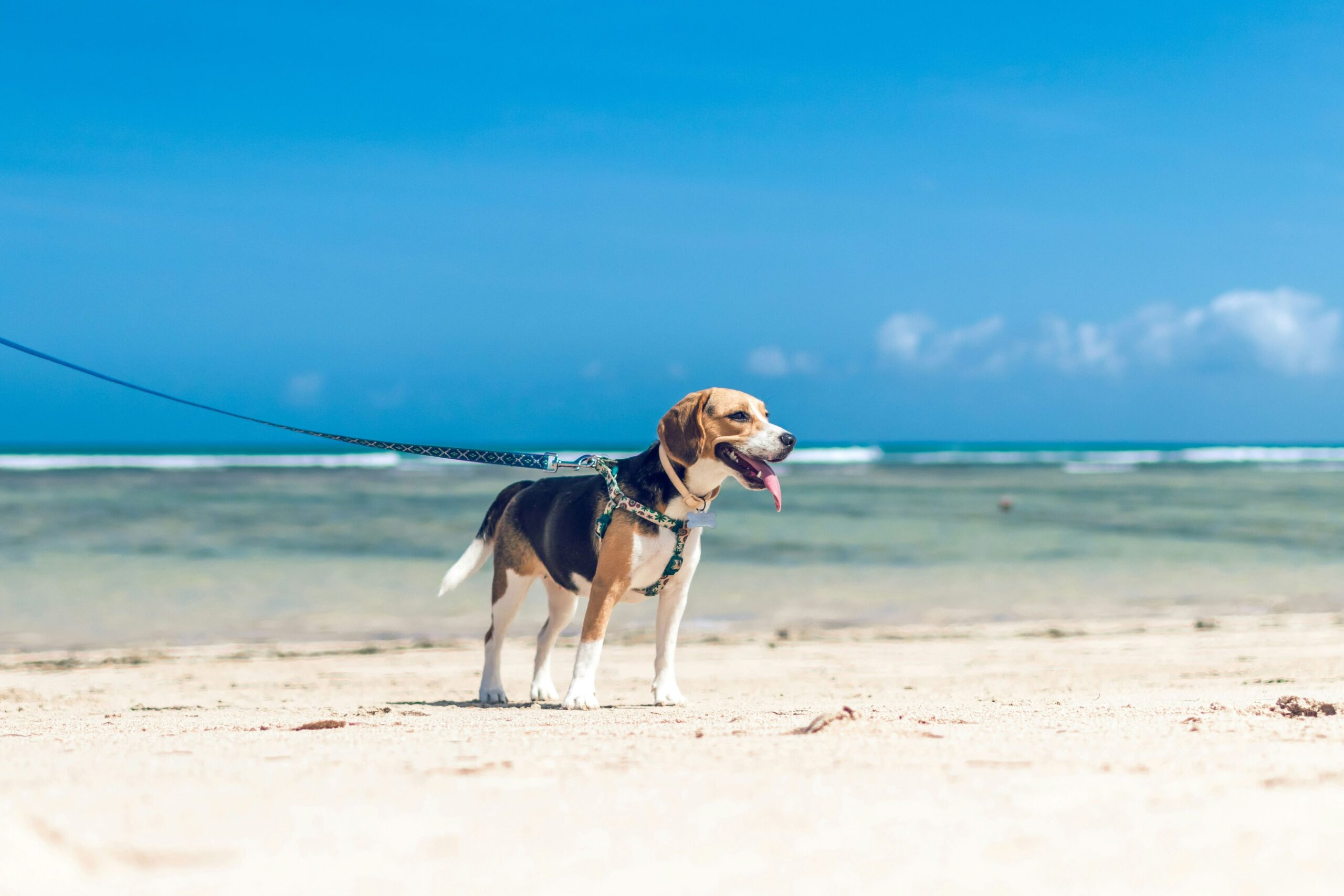8 Things to Consider When Taking Your Pet On Holiday
November 19th 2020
Our pets are our family, they make us laugh, help us exercise, provide us with company, help to reduce stress and lower blood pressure. Many of us wouldn’t dream of living without them, but there is no denying that going on holiday when you own pets can be tricky, whether you decide to take them with you or not. Here’s a handy guide of what to consider before taking your pet on holiday.
Travelling with dogs in the UK
Even before Covid-19 and Brexit, Staycations (where holiday makers stay in the UK to holiday) were soaring, it seems that many of us just can’t bear to leave our furry family member behind.
Pandemic aside, taking your dog abroad means extra paperwork, vet trips, vaccinations and being confident speaking a different language should you need a vet when you are away. Your pet also needs to be confident and happy out of their normal environment. There will be longer travel times and possibly higher temperatures for your dog to deal with too.
Staying in the UK means you can alleviate a lot of this stress. Just jump in the car and go, the benefit being that the UK is pretty small, and you can reach most places within a few hours of travelling. This means that your pet doesn’t have to travel too far, especially useful if they suffer from
travel sickness.Places to stay
Once you’ve decided to stay in the UK and you’ve made a list of everything to take you need to decide where you would like to stay. Some owners have motorhomes, caravans or choose to go camping, however there are also pet friendly hotels, B&Bs, self-catering cottages and static caravans to choose from.
Once you’ve established if they are pet friendly, check whether there is an extra charge for pets and if it is per pet or per week. Some places have restrictions on the number of pets you can take and the size too.
Unless you have friends that can recommend somewhere first-hand you will need to do some research. Check the online reviews for the accommodation (best to check dog friendly websites) and see what walks and facilities are available nearby for your dog. Many places don’t allow you to leave your dog in the property on their own so if you want to go out to dinner you will need to check what dog friendly pubs and cafes are close by.
You might also want to consider if there is somewhere at the accommodation where your dog can toilet. If you have a self-catering cottage, is the garden secure? Are you staying on a farm, does your dog chase sheep, chickens or other animals? If so, this may be best avoided.
Prepare, prepare, prepare
For a fun and stress-free holiday in the UK with your dog preparation is the key. The unpredictable weather means a good supply of old towels is always useful, for drying off after the beach or drying dogs after mud has been removed. Is there somewhere to wash off muddy dogs or welly boots?
Are you going to the countryside where sheep or deer ticks could pass to your dog? Have you treated them for
fleas and ticks before travelling? If you feed raw or wet dog food, does the accommodation have a fridge or freezer? These are all questions to ask before going away, then when you are on holiday there is nothing left to do but enjoy yourself!
If you have an elderly dog that is getting a bit stiff and slow, then be mindful of places with too many steps or slippery floors. Many self-catering homes have laminate floors that are easy to clean, but difficult for a dog to get traction on. Each time your old dog slips it causes pain and micro-trauma to the
joints.To avoid slips, make sure the fur between their toes is clipped short, their nails are short and consider taking some cheap rugs or yoga mats with you to cover the slippery surfaces.
Check list for travelling
Dog or dogs!
Collar & name tag
Make sure those microchip contact details are up to date
Harness & leads
Dog towels
Old blankets – to cover furniture if staying at a self-catering place
Treats
Bowls
Water for the car journey
Medications if applicable
Toys
Dog coat if travelling in winter
Poo bags
Tick remover
First aid kit
Cool coat for summer
Travel documents (if relevant)
Up to date with flea, worm & tick treatments
Up to date with vaccinations
Travelling abroad with your dog
All of the considerations regarding choosing accommodation and travelling in the UK still apply if you’re travelling abroad, however if your dog loves going everywhere with you and you’re planning on going further afield there are just a few extra things to consider.
Going abroad involves additional paperwork, extra vaccinations and being confident speaking a different language should you need a vet when you are away. The pet passport scheme no longer applies since the UK left the EU.
Travelling abroad either by train or ferry with long periods of driving in between is obviously not suitable for dogs that suffer from
travel sickness but if your pooch loves to ride alongside you then he/she will love spending extra time with you. Be aware that if you travel by the channel tunnel you stay in your car with your dog, however most ferries ask you to leave your dog in your car or one of the on-board kennels which some pets might find stressful. Check with the ferry operator to see what options there are.
If you are going somewhere hot you might need to take extra precautions to keep your pet cool. We have some top tips on keeping pets cool
here and many of these still apply to when you’re travelling.
However, the main difference with travelling abroad instead of a staycation is the need for extra vaccinations, paperwork, preventative measures against diseases the UK doesn’t have and veterinary visits to facilitate this.
Going on holiday and leaving your dog or cat behind
Sometimes, it’s not always possible to take your pet with you, especially if you’re going abroad. Some dogs love the experience, whereas others may be too old or too young to travel or may become too stressed. Cats rarely travel with their owners (although it has been done) and will generally be much happier left at home. It can, however, still be difficult to leave your pet behind but there are lots of options now available.
Kennels or cattery
The option most people think of first is the traditional kennels or cattery. A good place to start is by ringing them up to ask questions, then arrange a visit. There are lots of things to consider, do they have appropriate insurance? How big are the kennels/cat pens, do they have runs attached? How many walks does your dog get? Do they get walked on their own, or in groups with other dogs? Who walks them and how much experience do they have? Do they have heated floors or heated beds for cats for the winter months? Is there a quieter kennel or cat pen for animals that don’t like to be near others? What vet do they use in an emergency? Are they happy giving medication if necessary?
For cats, you might want to consider taking them to a cattery only. Some places can house both cats and dogs but hearing dogs barking all day could be stressful and a quieter cattery only establishment may be preferable.
Get recommendations from your friends and family too and do some online research, look for reviews. Don’t forget if your dog or cat goes to the kennels/cattery they will need to be up to date with their vaccinations.
House/pet sitter
This provides a good alternative if you would prefer your pet to stay at home in their own environment. It causes the least disruption to their routine and may be the best option for anxious pets. It can be costly but might work out the most economical option in the long run if you have multiple pets.
If you haven’t got friends or family members that can do this then you have to be prepared for a stranger to come into your home to stay. References therefore are a must; they should also have insurance and ideally be DBS checked (criminal record checked). For peace of mind, you might want to look for someone qualified in animal first aid too. There are several online companies for house sitters but again you could ask around for recommendations.
Home boarding
Another option is home boarding. This is where your pet goes and stays with someone. Usually for dogs but if they have a spare room, they may take cats as well. You would need to make similar checks into their qualifications, insurance and animal knowledge as you would with a house sitter, but you don’t have to give them access to your home. Some home boarders have their own pets so this option might not be suitable if your dog does not get on with other animals.
And finally…
Going on holiday should be fun! You deserve it! And there are plenty of options for you and your pets, whether they go with you or stay at home. The key for all of it is to do your research and not to leave things until the last minute, being prepared will allow you and your pets to enjoy themselves whatever you decide.


 Shop Dog
Shop Dog
 Shop Cat
Shop Cat
 Vet Know-how
Vet Know-how Contact
Contact